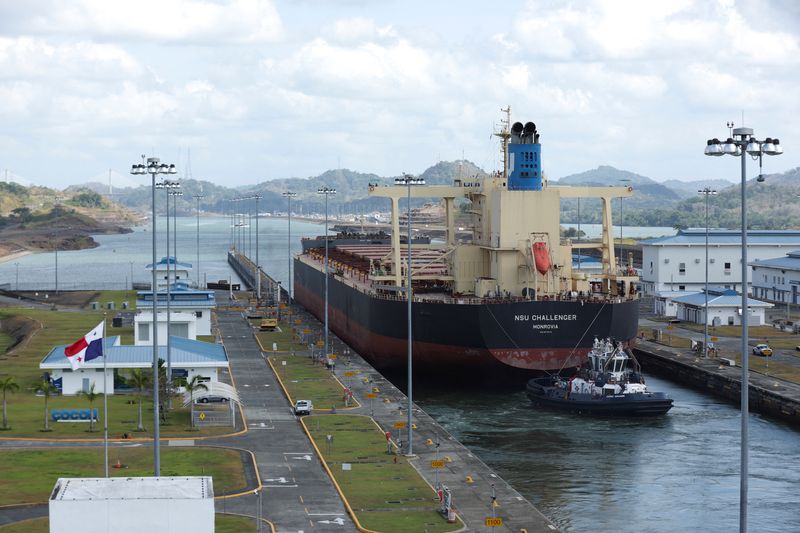PANAMA CITY (Reuters) -The Panama Canal, one of the world's main maritime trade routes, will further reduce daily ship crossings in the coming months due to a severe drought, the authorities managing the canal said late on Monday, increasing shipping costs.
Booking (NASDAQ:BKNG) slots will be cut to 25 per day starting Nov. 3 from an already reduced 31 per day, the Panama Canal Authority (ACP) said in a client advisory, and will be gradually reduced further over the next three months to 18 slots from Feb. 1.
In recent months, the ACP has imposed various passage restrictions to conserve scarce water, including cutting vessel draft and daily passage authorizations.
Water levels in Gatun Lake, the rainfall-fed principal reservoir that floats ships through the Panama Canal's lock system, have "continued to decline to unprecedented levels for this time of year," the ACP said.
"The recorded precipitation for October has been the lowest on record since 1950 (41% below), and so far, 2023 ranks as the second driest year for the same period," the authority said.
A naturally occurring El Nino climate pattern associated with warmer-than-usual water in the central and eastern tropical Pacific Ocean is contributing to Panama's drought.
The late arrival of this year's rains and the lack of precipitation in the Canal watershed had forced the canal authority to reduce average daily transit capacity slightly to 32 vessels per day since July 30.
The existing restrictions have resulted in long delays, with tens of vessels waiting to transit the canal.

An analyst note from the U.S. Energy Information Administration stressed that delays at the canal "have pushed shipping rates higher elsewhere by decreasing the globally available number of vessels."
It also said delays for some gas transporters were at record highs in Panama, pushing up the cost of shipping liquefied gas from the U.S.